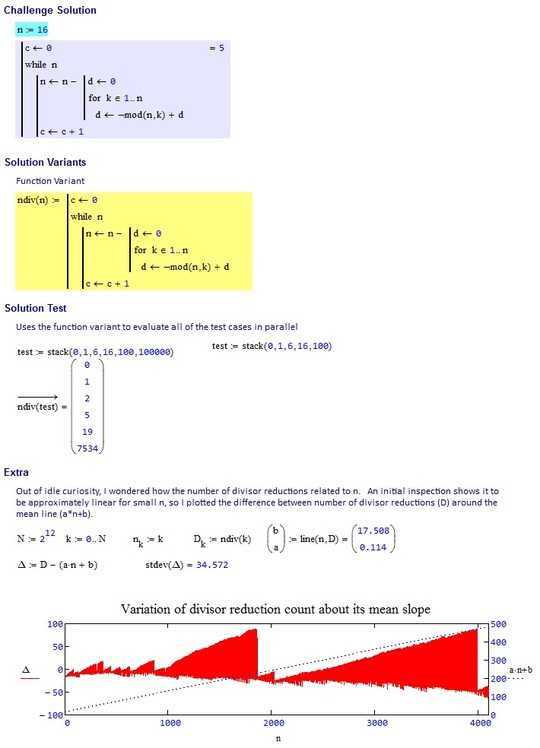21
1
A divisor of a number n is any number that evenly divides n, including 1 and n itself. The number of divisors d(n) is how many divisors a number has. Here's d(n) for the first couple n:
n divisors d(n)
1 1 1
2 1, 2 2
3 1, 3 2
4 1, 2, 4 3
5 1, 5 2
6 1, 2, 3, 6 4
We can repeatedly subtract the number of divisors from a number. For example:
16 = 16
16 - d(16) = 16 - 5 = 11
11 - d(11) = 11 - 2 = 9
9 - d( 9) = 9 - 3 = 6
6 - d( 6) = 6 - 4 = 2
2 - d( 2) = 2 - 2 = 0
In this case it took 5 steps to get to 0.
Write a program or function that given a nonnegative number n returns the number of steps it takes to reduce it to 0 by repeated subtraction of the number of divisors.
Examples:
0, 0
1, 1
6, 2
16, 5
100, 19
100000, 7534

5
Obligatory OEIS link: A155043
– Sp3000 – 2016-05-23T09:48:27.693Related. – Martin Ender – 2016-05-23T17:24:02.700